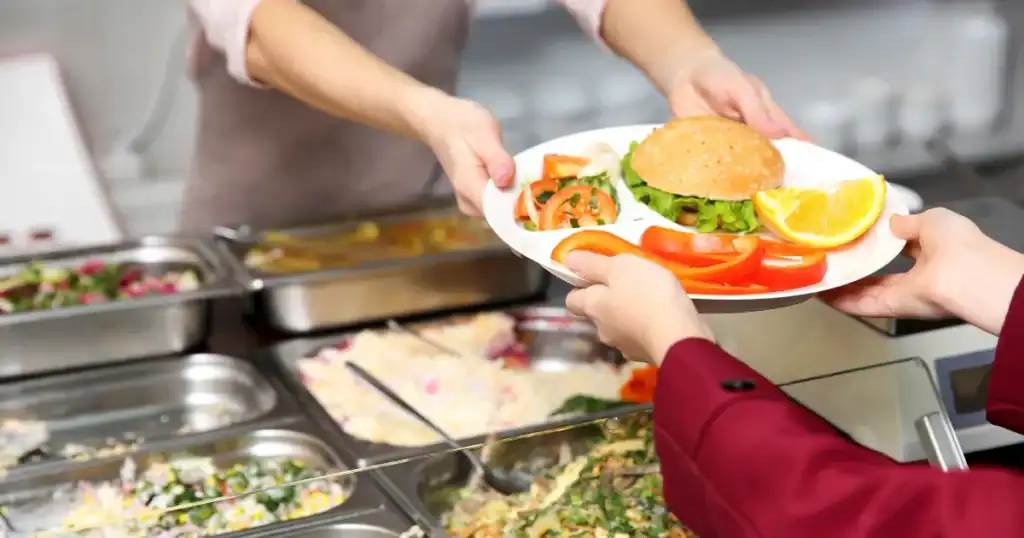Introduction
Getting a discounted lunch with HMRC picking up part of the tab seems irresistible to most business owners, which is why subsistence claims top the list when it comes to the most popular ways to save tax.
Whilst there are many genuine reasons you can claim your lunch and other food as a tax deductible expense, there are also situations in which a meal wouldn’t be. This often leads to confusion, with businesses struggling to work out which costs qualify under HMRC guidelines.
The difference between a business expense and a personal cost isn’t always clear, especially when working patterns blur the lines between business and personal activities.
This guide will walk you through when you can claim meal expenses, the documentation required and the common mistakes that can trigger HMRC investigations.
If a food cost isn’t covered in one of the 5 categories below then it’s likely going to be counted as a personal benefit to an employee.
This means you’ll be blocked from reclaiming VAT on the cost, but will be able to put it through your accounts to save corporation tax. The employee in addition to this will need to pay benefit in kind taxes and you’ll also need to pay Employers Class 1A NIC’s on it’s value.
Why you should work with us
- Three working hour response target for queries
- Fixed monthly payments and any ad hoc fees pre-agreed
- Full UK based team in the office 9-5 Monday-Friday
- All-inclusive tax planning and software support
- Inclusive support for tax investigations and issues
*T&C’s apply
The Five Types of Food Costs
1. Subsistence

Subsistence expenses relate to expenditure on food, refreshments and other sundries when you’re conducting business. The reason most people get it wrong is that they believe the rules are aligned to those on travel and if their journey qualifies as a travel expense, then it automatically qualifies for tax relief on subsistence.
So to clarify; You can only claim subsistence in scenarios where you are operating outside of your “normal pattern of work”.
For example if you were an electrician and you were whizzing around all over town to get to jobs during your normal 9 – 5 work hours, you would be able to claim the related travel expenses but not the subsistence costs incurred because you usually work 9 – 5.
In the above scenario, let’s say you had to travel somewhere that was significantly further from your usual area, or had to work more than your usual hours, then claiming subsistence would be okay.
There are two ways to claim the cost, firstly you could just have the company pay for (or reimburse you if you claim expenses) the actual costs e.g. of a meal (with one alcoholic drink only), coffee/tea, news paper, toiletries, etc… if you needed them.
Or you could have your business pay you the flat rates…
| Type | Allowance | Conditions |
| a) | £5 | The duration of the qualifying travel in that day is 5 hours or more |
| b) | £10 | The duration of the qualifying travel in that day is 10 hours or more |
| c) | £25 | The duration of the qualifying travel in that day is 15 hours or more and is ongoing at 8pm |
| d) | £10 | An additional meal allowance not exceeding £10 per day may be paid if an allowance under a) or b) is paid and travel is ongoing at 8pm. |
The last point (d) is a bit confusing, but it essentially means that if the travel is less than 15 hours so (c) doesn’t apply but you still work past 8pm, you can claim an additional £10 for a meal.
Just remember that not all subsistence related costs have VAT on them, for example cold food (excluding confectionery) to take away or certain sanitary items.
VAT recovery is separate to the flat rates in the table above, so you can still reclaim VAT on any expenses as long as you have the receipts, even when you’re paying your staff the flat rate allowances and getting the corporation tax deduction on them.
You can’t however claim the actual costs as well as the flat rate expenses for corporation tax as that would be double counting.
2. Team Meetings

Not all team meetings need to take place within the four walls of an office. In fact, stepping outside of the usual environment can sometimes bring new energy and perspective to the table.
Holding a meeting in a café, restaurant, or other casual venue can encourage fresh thinking, reduce stress, and foster more open discussions. A change of atmosphere can help team members view challenges differently, spark creativity, and improve collaboration.
From a practical standpoint, it’s also reassuring to know that these off-site meetings don’t have to be a financial burden. As long as the main purpose of the gathering is business-related—whether that’s brainstorming, planning, problem-solving, or reviewing progress—the associated expenses can typically be claimed as tax deductible.
This includes the cost of food, beverages, and the venue itself, provided you can demonstrate that meeting outside the office was a reasonable and necessary choice for the team’s productivity or was required for privacy reasons.
In the event you hold a meeting in your office and you need to cater for it due to people not being able to pop out for lunch or having to work late, then these costs would be allowable in the same way as any other subsistence costs where you are working “outside of your normal pattern”
3. Employee Entertaining

The Annual Event Allowance, also often referred to as the Christmas Party Allowance, provides employers with the opportunity to give back to their staff by funding social events throughout the year.
The allowance permits you to spend up to £150 (including VAT) per employee, per tax year, and it can also increase by a further £150 per head for every guest that attends. This makes it a valuable way to boost team morale, reward hard work, and create opportunities for employees to bond outside the office—all while staying tax efficient.
There are some important rules to bear in mind:
Multiple Events – The £150 allowance doesn’t have to be used on just one occasion. For example, you might host a Christmas party in December and a summer BBQ in July, as long as the combined cost per head doesn’t exceed the annual limit.
Exceeding the Limit – If the total spend per person goes over £150, even by a small amount, the entire cost of the events could be classed as a taxable benefit in kind for employees. In that case, the events would no longer qualify for exemption, so careful budgeting and planning are key.
Inclusive Invitations – To qualify, events must be open to all employees, although it doesn’t have to be the same event for everyone. For instance, you could hold a London-based party for city staff and a separate event for employees in another office location. The important part is that no one is excluded.
What’s Covered – The allowance isn’t limited to the cost of the party itself. It can include related expenses such as venue hire, food, drinks, entertainment, overnight accommodation, and even transport costs like taxis or coaches to get employees safely to and from the event.
Caveat!!! There has to be a (non-director) employee invited to the event for it to count as employee entertaining, you cannot have a director only event and qualify unless you’re in a business where there are no other employees.
When used effectively, the Annual Event Allowance is a great way to invest in your people, improve team spirit, and show appreciation for their contributions, all while taking advantage of a tax-efficient benefit.
Trivial Benefits
It’s worth noting that certain treats (including food) that you provide your staff under the value of £50 (inc VAT) do not count as part of your Annual Event Allowance.
For something to qualify as a trivial benefit, it has to be random and unexpected so there absolutely cannot be a prior agreement with an employee that you’ll get it for them.
Directors of close companies have a limit of £300 every tax year, per company they work for when it comes to receiving trivial benefits, although the £50 per benefit cap still applies.
For any other employee there is no overall limit to the number of trivial benefits as long as none of them exceed £50. If these criteria aren’t met then the benefit will use up the annual event allowance and after that they will be classified as an employee benefit and attract tax in the usual way.
4. All Other Entertaining

There are instances when you might need or want to entertain people who aren’t employees of your organisation and you will incur costs to host an event or take them to dinner.
This section discusses the entertaining of Clients, Suppliers, Subcontractors, Prospective Clients or Suppliers, Shareholders, or anyone else you can think of that is not an employee or director of your organisation.
In general these costs won’t be deductible for Corporation Tax or reclaimable for VAT, they also won’t count as an employee benefit to the member of staff hosting the guest.
However if the quid pro quo principal below applies then they could be considered a regular expense with full CT savings and VAT reclaim.
Quid pro Quo
The quid pro quo principal allows you to obtain Corporation Tax and VAT relief on the costs of entertaining in situations where there is a pre-agreed obligation placed on your guest to perform some sort of action that is beneficial to your business.
This could be attending a sales presentation if they are a potential customer, or it could be providing a valuable bit of advice for free if they are a consultant or industry expert.
There are many other scenarios where this might apply, the most important part is that they are giving you something in return which is reasonably proportional to the amount you’re spending on hosting them.
As with most things in tax, it’s essential to keep the evidence when it comes to the conversations that occurred prior to, and during the meeting so you can demonstrate the purpose and any agreements that were in place.
When can VAT be reclaimed on entertaining?
The rules for reclaiming VAT are slightly different to the rules around what is deductible for corporation tax. For a corporation tax deduction the expense has to be wholly and exclusively incurred in relation to subsistence.
This means that even if you were working outside your normal pattern of work and you just happened to have dinner with a client who was doing the same, then there would be no CT deduction on the grounds of duality of purpose. In this situation even though the primary reason for the meal was subsistence, the incidental element of entertaining a client would negate the entire claim.
It doesn’t matter if you only paid for your meal and they paid for theirs, or if you paid for both but wanted to disallow the items your client ate, the entire bill would be entertaining including your share.
In contrast the manual outlining the threshold for the VAT reclaim on your share of the food specifies that:
“3.3 Recover the VAT on entertainment where your employee hosts to a non-employee | Where the costs are incurred for the sole purpose of entertaining a non-employee, the tax is input tax, but is blocked under the business entertainment rules“
The wording of this paragraph in the legislation indicates that in a situation where the primary purpose of the dinner wasn’t to entertain, but was in fact subsistence related then a VAT claim for your costs is reasonable. If you had paid for your clients share of the meal then you would definitely not be able to reclaim VAT on their part.
If the entertaining was incidental in the way discussed above then evidence is needed to demonstrate it, perhaps a calendar note to say how a meeting was running over and then you had to grab lunch at the same time.
5. Office Food

Meals and other refreshments provided to employees while they are at their normal place of work are generally treated favourably for tax purposes.
Where the conditions are satisfied, the cost of providing such meals is tax deductible for the employer (reducing Corporation Tax), input VAT can often be reclaimed, and importantly, the employees themselves do not suffer a benefit-in-kind charge. This makes it one of the more efficient ways to provide staff welfare.
For these tax advantages to apply, the following conditions must be met:
Meals must be provided on the employer’s premises
- This includes on-site facilities such as a staff canteen, dining hall, staff room, or even an office kitchen area where meals are regularly made available.
- “Premises” can also extend to a location where the employer operates, not just the head office — for example, a warehouse, branch office, or manufacturing site.
- Food purchased off-site (e.g. takeaways) does not automatically qualify unless it is part of a recognised canteen arrangement provided for staff as a whole.
Meals must be available to all employees, or at least to a defined group of employees generally
- The exemption requires that meals are not restricted only to directors, partners, or senior management.
- Providing meals to all staff, or to staff working at a particular site, satisfies the condition.
- Where different groups of staff work in different locations, it is acceptable to provide meals at one site for those employees, even if other sites have different arrangements.
- Selective provision (e.g. “directors’ lunches only”) risks the expenditure being reclassified as a taxable benefit for those individuals, and the tax/NIC exemption would be lost.
A Few Other Points…..
If I Can’t get a Corporation Tax or VAT Saving then Why Don’t I Just Pay for it Myself?
Even in the most extreme cases where an expense is treated as non deductible entertaining, you are still better off as the owner/director by getting your company to pay for it.
The reason for this is that you are still saving tax by not having to withdraw that extra money as salary or dividends and therefor having to pay personal income tax, NIC’s or dividend taxes on it.
What are Reasonable Meal Costs?
HMRC’s reasonableness test excludes extravagant dining from allowable business expenses but defining “reasonable” requires understanding both the rules and practical application.
Standard pub meals, café lunches and modest restaurant costs generally meet HMRC’s reasonableness criteria. A £15-20 lunch during business travel is usually fine, £100 fine dining will be questioned.
Local cost variations affect reasonableness. A £25 lunch in central London is reasonable, the same cost in a rural area is excessive. Consider local pricing when determining expense levels.
Business context affects reasonable limits. Client entertainment may justify higher costs than routine travel meals, but elaborate meals with expensive wine will always be questioned regardless of business purpose.
Five-star dining and luxury restaurant visits are usually above reasonable limits unless exceptional business circumstances justify the expense. HMRC expects meal costs to reflect genuine business necessity not personal preference.
Document business justification for any meal costs above local prices. Meeting with major clients may warrant higher expenses but the business benefit must clearly outweigh the additional cost.
Record Keeping and Documentation Requirements
Good record keeping is the foundation of successful meal expense claims and provides protection during HMRC investigations. Record keeping requirements go beyond just collecting receipts.
Original receipts must show date, amount, supplier details and VAT breakdown for all meal expense claims. HMRC requires itemised receipts for expenses over £25 but keeping detailed records for all amounts ensures full compliance.
Business purpose documentation should accompany every meal expense claim. Record who attended business meals, what was discussed and how the expense advanced your business objectives. Client entertainment requires more detailed justification.
Travel logs provide crucial supporting evidence for meal expense claims. Record departure times, destinations, business reasons for journeys and time away from your usual workplace. This helps establish the business purpose. Digital expense tracking apps can simplify record collection and compliance. Take photos of receipts, categorise expenses correctly and store in the cloud for easy HMRC access.
Retention periods require you to keep all expense records for at least 5 years after the Self Assessment deadline. Limited companies must keep records for 6 years and longer for complex tax matters.
Keep both physical and digital copies of important documents. While photos are fine for routine expenses, significant claims benefit from original receipt retention to answer any HMRC questions.
Common Mistakes to Avoid
Understanding common errors helps you avoid compliance failures and ensures your meal expense claims pass HMRC scrutiny. These mistakes can trigger investigations and denied claims.
Claiming daily lunch costs at your usual workplace is the most common error. Regular meals at your permanent office location are always personal expenses regardless of work discussions or business content consumed during lunch.
Including alcoholic drinks without clear business justification is a frequent HMRC challenge. Alcohol is generally not an allowable business expense and expensive wine will be disallowed even within otherwise legitimate meal claims.
Mixing personal and business expenses on shared receipts creates compliance headaches. Separate business and personal costs clearly, claim only the business portion and keep detailed allocation records.
Claiming meals during regular commuting between home and your usual workplace breaches fundamental HMRC principles. Commuting costs including meal expenses are personal regardless of work activities during travel.
Exceeding reasonable cost limits for business entertainment or routine meals triggers HMRC scrutiny. Elaborate meals at expensive restaurants will be questioned unless exceptional business circumstances justify the additional expense.
Inadequate documentation undermines otherwise legitimate claims. Missing receipts, poor business justification or incomplete travel records gives HMRC grounds to reject valid expenses and impose penalties.
FAQs
Can I claim lunch every day as a business expense?
No, regular daily lunch costs at your usual workplace are personal expenses and not tax-deductible under HMRC rules. Only meals consumed during qualifying business travel or at temporary workplaces can be claimed.
What makes a lunch meeting tax-deductible?
The meal must be wholly and exclusively for business purposes, such as client meetings or supplier negotiations, with proper documentation showing attendees and business topics discussed. Regular social meals don’t qualify even if business is mentioned.
How much can I claim for business lunch expenses?
HMRC requires “reasonable” costs but doesn’t set specific limits beyond subsistence rates for travel. Don’t have elaborate meals and keep costs in proportion to the business purpose. Standard restaurant meals are fine but luxury dining will be questioned.
Do I need receipts for all meal expenses?
Yes, HMRC requires original receipts showing date, amount and VAT details for all business expense claims. While the £25 receipt threshold applies to some expenses, keeping full records protects you from challenges.
Can limited company directors claim lunch expenses?
Yes, but meals must be wholly for business purposes and properly documented to avoid benefit-in-kind tax charges. Directors have the same “usual workplace” rules as employees for daily meal costs.
Can limited company directors claim lunch expenses?
Yes, but meals must be wholly for business purposes and properly documented to avoid benefit-in-kind tax charges. Directors have the same “usual workplace” rules as employees for daily meal costs.
What if HMRC rejects my meal expense claims?
Disallowed expenses increase your taxable income and could trigger Income Tax, National Insurance and Corporation Tax bills. Repeatedly incorrect claims may result in penalties, interest charges and an HMRC investigation.


